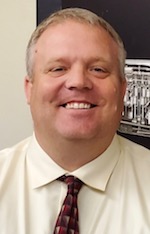Daily Business Report-Jan. 30, 2020
This unique species has a big impact on its ecosystem in its native range in Africa. (Courtesy of UC San Diego)
Drug lord’s hippos make mark on foreign ecosystem
Study on the impacts of the world’s largest invasive animal in Colombia provides key insight into the future of a growing population
By Mario Aguilera | UC San Diego
Four hours east of Medellín in northern Colombia’s Puerto Triunfo municipality, the sprawling hacienda constructed by infamous drug lord Pablo Escobar of “Narcos” fame has become a tourist attraction. When Escobar’s empire crashed, the exotic animals housed at his family’s zoo, including rhinos, giraffes and zebras, were safely relocated to new homes… except for the hippopotamuses.
With no safe or practical way to remove the animals, the original population of four hippos has since ballooned to more than 80, per the last estimate (background story here)
Now, scientists at the University of California San Diego and their colleagues in Colombia have provided the first scientific assessment of the impact the invasive animals are having on Colombian aquatic ecosystems. Their study is published in the journal Ecology.
“This unique species has a big impact on its ecosystem in its native range in Africa, and we found that it has a similar impact when you import it into an entirely new continent with a completely different environment and cast of characters,” said UC San Diego Biological Sciences Professor Jonathan Shurin. “It’s clear that this effect might include negative consequences for water quality and water resources by fueling harmful algae and bacteria.”
Spanning two years, the research team completed a comprehensive assessment of water quality, oxygen levels and stable isotope signatures, comparing lakes with hippo populations to those without. The researchers also compared the microbiomes in the lakes, along with assessments of insects, crustaceans and other organisms.
The study revealed that the hippos are changing the area’s water quality by importing large amounts of nutrients and organic material from the surrounding landscape. Since the nocturnal animals feed on land most of the night and spend their days cooling off in the water, their large inputs of waste are altering the chemistry and oxygen of the lakes.
_________________________
Scripps Research receives $50 million
to advance therapies for tuberculosis, malaria
and other global health challenges
Scientists at Scripps Research’s drug development division, Calibr, have been awarded $50 million from the Bill & Melinda Gates Foundation to deliver new preclinical candidates against the global threats of tuberculosis and malaria, as well as to support research into pandemic preparedness, vaccine development, new contraceptives and gut health programs.
The funding will also boost Calibr’s continued efforts to repurpose existing drugs through the groundbreaking ReFRAME initiative. The five-year award is a renewal of the Calibr flagship portfolio grant and brings the total commitment from the Bill & Melinda Gates Foundation to $135 million between 2014 to 2024.
“Support from the Bill & Melinda Gates Foundation has allowed us to discover and advance several promising therapeutic candidates,” says Peter Schultz, PhD, chief executive officer of Calibr and Scripps Research. “The foundation’s continued generous support will tremendously accelerate our efforts to address unmet medical needs for millions of people around the globe.”
_________________________
PSAR Realtors group hosts 2020 housing market forecast
The Pacific Southwest Association of Realtors (PSAR), a real estate trade group for San Diego-area Realtors, will host its “2020 Housing Market Forecast” with Oscar Wei, senior economist, California Association of Realtors (CAR), from 11:30 a.m. to 1 p.m., Tuesday, Feb. 4, at PSAR’s South County Service Center, 880 Canarios Court, Chula Vista.
Wei, with a bachelor’s and master’s degrees in economics, oversees CAR’s data mining and analyzing housing market statistics released to the public on a regular basis. He contributes frequently to CAR market analysis articles and other articles on such topics as housing supply, distressed sales, housing tax policy, housing affordability and other subjects relevant to the real estate industry.
At the PSAR event, he will share CAR’s forecast, as well as consumer trends behavior and public policy issues affecting the housing market. Cost to attend is $10 for PSAR members, $20 for nonmembers. Lunch will be served starting at 11:30 a.m. To RSVP, call (619) 421-7811 or visit www.psar.org.
_________________________
Supervisors adopt new measures to address
homelessness in unincorporated area
The county Board of Supervisors voted to adopt several measures, including sheltering options and expanded outreach teams, to deal with homelessness in unincorporated communities.
The measures, brought forward by Supervisors Dianne Jacob and Jim Desmond, are expected to help with homelessness in unincorporated areas that have seen a significant increase of people who don’t have a place to live. Recent encampments at Lamar Park, Spring Valley Park and in other outlying areas are the latest reminders that homelessness is a regional crisis.
_________________________
Firm opens San Diego office with Bar
Association president Johanna Schiavoni

The California Appellate Law Group, a 16-attorney appellate specialty boutique with offices in San Francisco and Los Angeles, is expanding to San Diego with the addition of Johanna Schiavoni.
Schiavoni has nearly two decades of experience handling state and federal appeals, and she is a certified appellate specialist by the State Bar of California. She is also the 2020 president of the San Diego County Bar Association, which serves 10,000 members in and around California’s second-largest city.
Schiavoni is a former law clerk to Judge M. Margaret McKeown of the U.S. Court of Appeals for the Ninth Circuit.
Schiavoni is certified as a specialist in appellate law by the State Bar of California and has more than 17 years of appellate experience. She has argued over 30 cases in the state and federal appellate courts, and has been the principal brief-writer in at least 70.
In 2018, Schiavoniwas appointed by Mayor Kevin Faulconer, and unanimously confirmed by the City Council, to a position on the board overseeing the San Diego County Regional Airport Authority.
_________________________
County to open psychiatric hub
in Hillcrest, other communities
The County Board of Supervisors today voted to partner with UC San Diego Health to open a 60-bed psychiatric facility in Hillcrest.
The new behavioral health hub is expected to cost $115 million and will be located on a county-owned property on Third Avenue that has been vacant for years. It is one of several hubs that will be opened in the central and northern areas of the region.
“We have something that is really incredible,” said Supervisor Nathan Fletcher who recommended that the empty County property be turned into a behavioral health hub. “The building at Third Ave. truly fills a missing need of a regional hub for the central region.”
The new hubs and network model were announced during the County Health and Human Services Agency quarterly update to the Board on the behavioral health continuum of care for the region. They are expected to reduce the number of emergency department visits and inpatient bed stays due to a psychiatric crisis and to reduce jail stays and homelessness.
The 7.24-acre parcel has been vacant for over 10 years and used to operate as a county center for abused and neglected children. Adjacent to the property is another county-owned parcel which houses an Emergency Screening Unit that currently serves children and teens who are experiencing a mental health crisis or emergency.
_________________________
San Diego Automotive Museum names
Lenny Leszczynski as executive director

San Diego native Lenny Leszczynski has been named executive director of the San Diego Automotive Museum. Leszczynski brings more than 25 years of nonprofit professional experience to the Auto Museum. His experience also includes more than 15 years of developing, managing, and reporting budgets for community programs and over 10 years of fundraising experience.
Leszczynski has a degree in Child and Adolescent Development from California State University Northridge and is in his final term at Western Governors University where he is working on his Master of Science, Management and Leadership degree.
His love for cars first started when his uncle took him to the Peterson Museum and he fell in love with a 1964 Chevy Impala; five years later he bought one for himself as his first car. When he is not at the museum, hecan be found at the softball field with his wife and four daughters.
“The museum is thrilled to have a new leader,” said Sally Hansen, executive assistant at the Automotive Museum. “The staff and board are rallying around Lenny and the promise of a bright future.”



